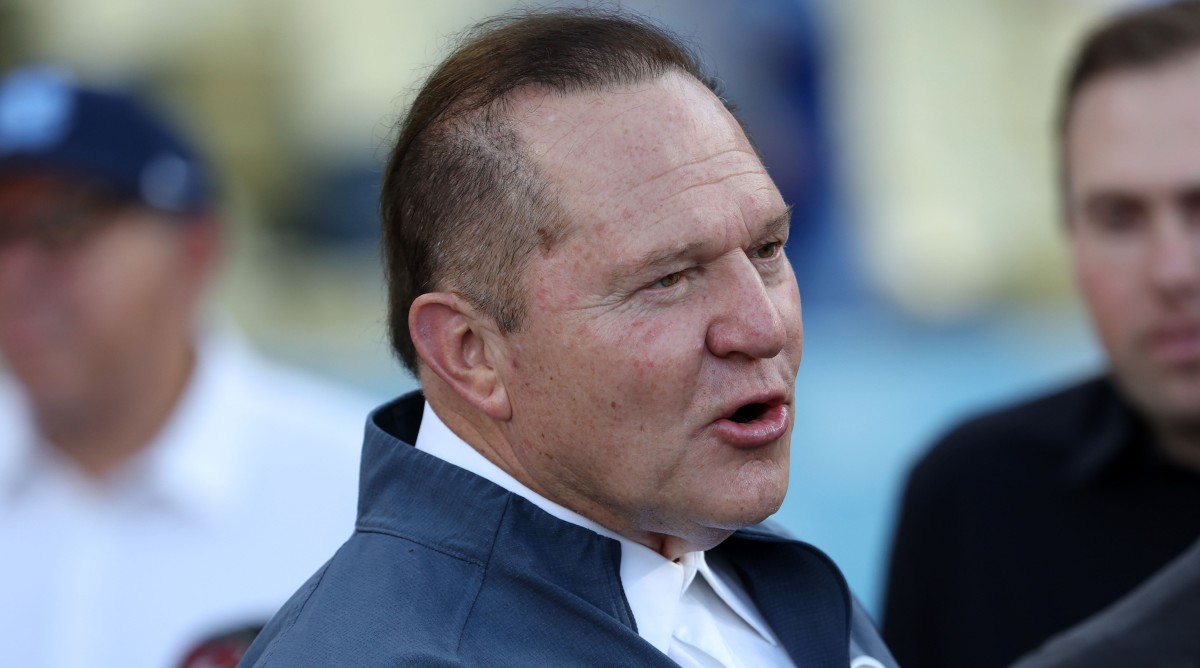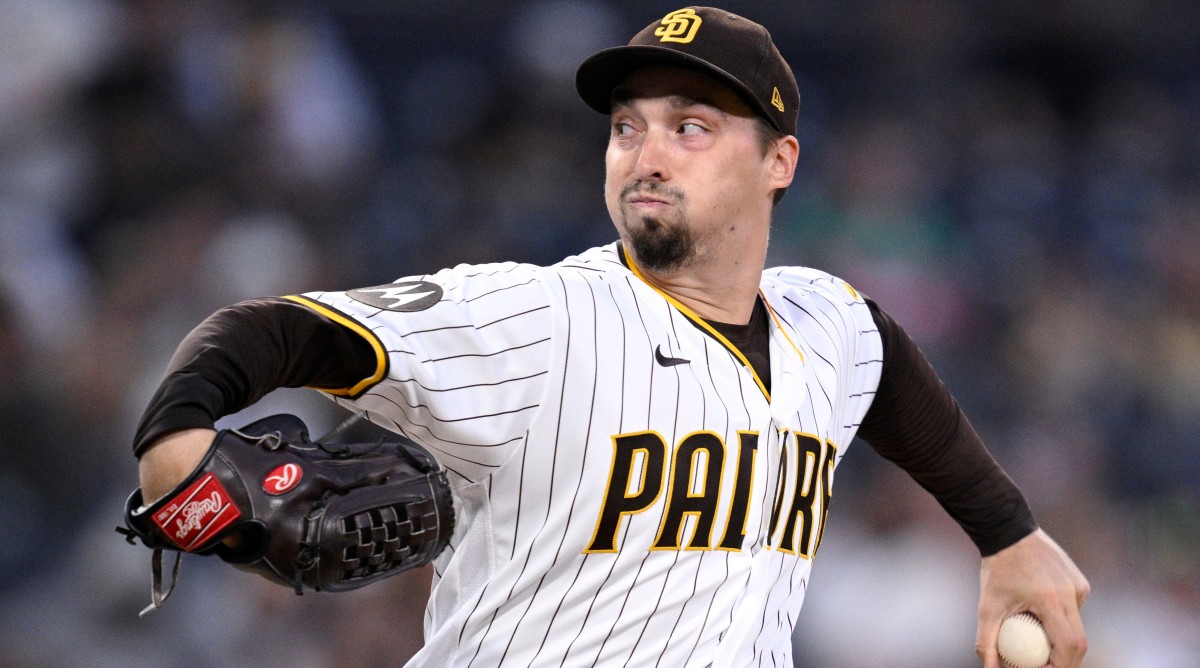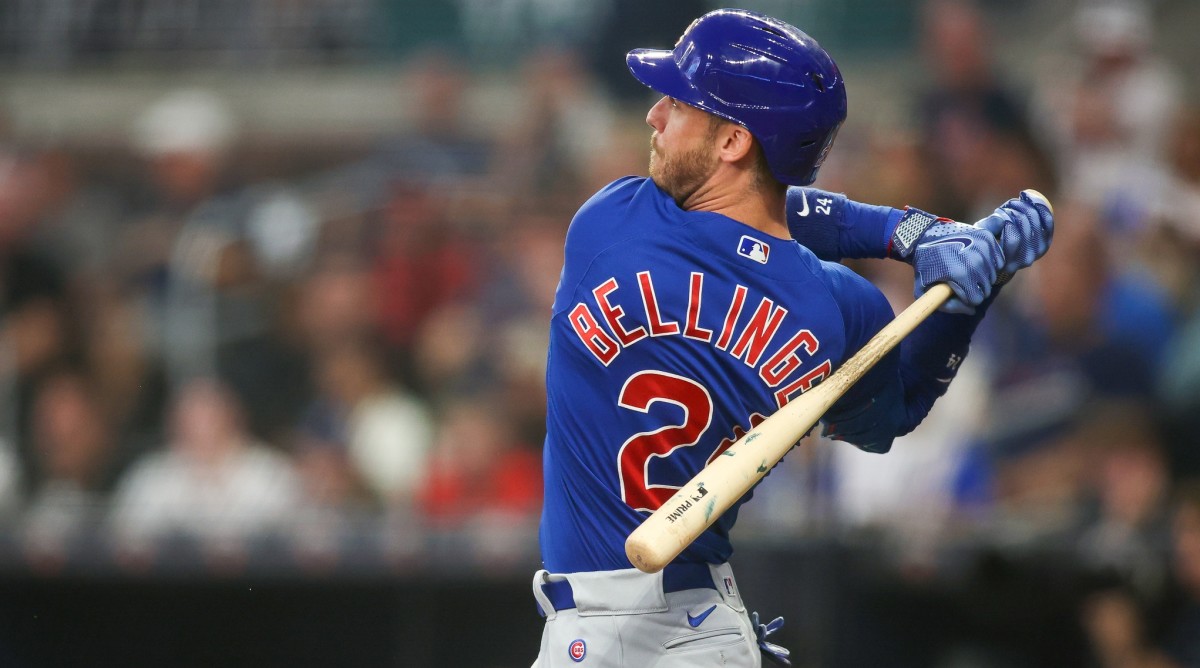Scott Boras Is Content to Let the MLB Free Agency Hot Stove Burn Slow

They are known inside the corridors of the game as The Boras 5, as if they are radicals of similar obdurate minds.
Free agents Blake Snell, Cody Bellinger, Jordan Montgomery, Matt Chapman and J.D. Martinez have combined for 10 All-Star appearances, two Cy Young Awards and a Most Valuable Player Award. They are worth about $800 million on the open market, or about a quarter of the approximately $3.3 billion that will be spent on free agents this offseason. Each one is a potential difference-maker when it comes to shifting the balance of power within a division.
Yet as spring training camps open, all five are unsigned. Not coincidentally, all are represented by superagent Scott Boras. And what is the radicalism that drives The Boras 5? They have yet to receive offers that meet what they and Boras believe is their true valuation. And no, Boras says, that calculus does not change just because camps are open.
“I’ve signed 18 free agents [this winter],” says Boras. “I have evaluations. Teams have time for making late decisions. Often teams do that. I don’t mind letting time go.”

Meanwhile, under the supervision of Boras’s roster of trainers and support staff, Snell is training at a Boras facility in Newport Beach, Calif., Montgomery and Martinez are training at one in Florida and Bellinger and Chapman are training at one in Arizona. He promises they “do not end up behind in any way when they do report to camp.”
In Boras’s two most famous examples of late signings, Bryce Harper reported to the Philadelphia Phillies’ 2019 camp on March 2 after signing as a free agent. He posted an .878 OPS in April. Pitcher Kyle Lohse signed with the St. Louis Cardinals in ’08 on March 14, then went 3–0 with a 2.36 ERA in six April starts.
“I took care of this years ago,” Boras says. “I’ve spent millions on sports training facilities and instructors. I can conduct a spring training.”
Is this slow free agent burn good for baseball? Owners would prefer it not be the case. At a news conference Thursday, in response to a question about the slow pace of free agency, commissioner Rob Manfred recalled proposals the owners made to the players in 2019: establish a free-agent signing period with a deadline—“ideally probably in December with a deadline that drove people to make deals, get things settled.”
These Six MLB Stars Are Already on the Road to the Hall of Fame
As Manfred recalled, the idea was “not warmly received” by the union.
It may sound like a viable idea to a fan, especially one who digs the NFL and NBA free agent signing periods, but it has virtually no chance of happening. A deadline in a sport without a cap—in other words, one that thrives on a free market—makes little sense to the players association and agents like Boras.
“You saw what happened in the draft when teams created an entire strategy around it,” Boras said. “They basically don’t negotiate with you until the last second. You get a call five minutes before the deadline before they make an offer. Deadlines are deathlines to players.
“[The NFL and NBA] are cap sports, and when you have a salary cap you always know the market you’re in. It’s not a free market. Consequently, in baseball, circumstances in the sport—unlike other sports—can evolve when it comes to decision-making. The excitement comes from how baseball owners can make decisions as circumstances change over time.
“Intellect would be sacrificed [with a deadline] because the information is less. More time includes the evaluation owners can make where they may feel differently in February and March than they do in October.”
This week, Boston Red Sox manager Alex Cora gave a uniformed voice to what many fans were thinking. He called the offseason “slow” and “boring.” Sports media and culture these days are consumed with instant gratification. Give me more and give it to me quickly. I get it.

But what if you’re Snell and you’ve invested 13 years in professional baseball and only now have earned the opportunity to decide where you’d like to work? Should you have to decide under a deadline for the sake of “creating interest”? Public relations value should be the residue, not the driving force, of structural change.
Besides, as Boras says, “I’m getting 40 calls a week from journalists who want to write about the impact these [free agents] can make.”
The hot stove still burns, even with players decamped to Arizona and Florida. Boras has kept it burning with his patience, just as he has many other times. To many owners, he is the flaw in the system.
“I’ve signed guys like [Stephen] Strasburg and [Gerrit] Cole and [Anthony] Rendon in three days for nearly a billion,” he says, pointing out deals he reached quickly. “It has nothing to do with me.”
The key to Boras’s game plan is simple: rely on the value of high-end talent. Harper, he says, is a good example of how time does not discount rare talent.
“It took the Phillies four months,” he says. “I think decisions should not be made in a very short window. Because these are players who are too good to turn down. They’re that impactful. And time has told you that when you go out and get these players [late] they make an impact. It has been measurably positive.”
Dave Stewart Is Ready to Bring a Minority-Owned MLB Franchise to Nashville
Imagine how Snell on the New York Yankees could change the balance of power in the AL East. Snell turned a corner last year when he stopped thinking “walks are bad” and simply relied on his nasty stuff to erase them when they did happen. He held batters to a .152 average with runners in scoring position. It’s exactly the kind of stuff teams crave in the postseason. In his career, Snell has allowed two runs or less in 10 of his 12 postseason starts.
Much has been made about Snell, 31, not being “a workhorse,” but the game has changed. Snell averaged 5.63 innings per start last year in a world in which starters averaged only 5.1. His average length compares to those of Spencer Strider (5.8), Max Scherzer (5.65), Dylan Cease (5.36) and Cristian Javier (5.23).
Imagine how Bellinger, 28, makes the Chicago Cubs the favorites in the NL Central. He’s not the same slugger who slugged .629 when he won the MVP in 2019, but he is in other ways a better hitter. Last season he hit .279 with two strikes, better than anybody except Luis Arráez.
Bellinger’s skill set is a package of power, speed and defense rarely found in the game. Through 875 career games, he has 178 homers and 82 steals. Only 12 other players reached those thresholds in that span. The most recent was Mike Trout.

Montgomery, 31, is a reliable starter with a 121 ERA+ over more than 500 innings since 2021. Only 10 other pitchers can claim that distinction.
Chapman, 30, is a terrific defender who looked like he was due for a big payday when he slugged .687 in April. But I thought he might take a qualifying offer after he slashed .205/.298/.361 for the rest of the year while having some real trouble hitting breaking pitches. Only Anthony Volpe, Randy Arozarena and Christian Yelich slugged worse than Chapman against spin (.285, min. 150 AB).
Martinez, 36, can still rake (.572 slugging percentage last year), but it comes at the cost of more swing and miss (career-high strikeout rate, 31%) and almost no defensive value. His career postseason slash line speaks to his ability to come through in big spots: .294/.386/.588 for a .974 OPS, the 12th best among the 330 players with at least 100 postseason at-bats.
A deal for any of them does not seem imminent. Boras is counting on the rarity of their value, not the typical baseball calendar, to get deals done. Here we are into a fourth month of free agency and four of the eight best free agents are still available.
In the meantime, The Boras 5 continue their shadow spring training workouts. And because of them, the hot stove remains lit, which reminds Boras of another symbol borne from fire.
“It’s like choosing a pope,” he says. “Just because there is not smoke one day doesn’t make the next day any less exciting.”
